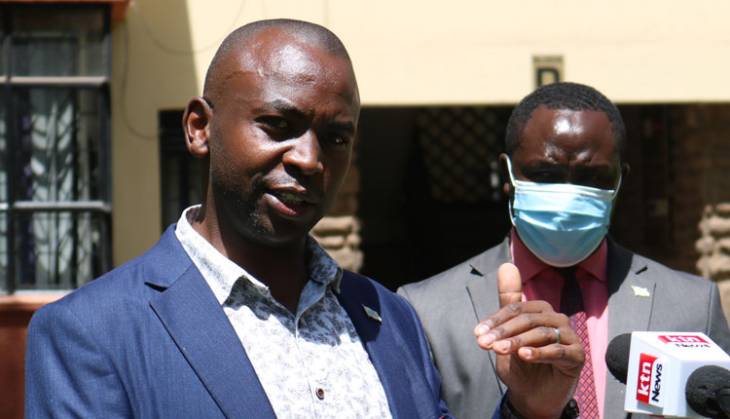Unions decry shortage of medics, urge State to recruit more clinical officers
By George.Kebaso, January 5, 2022The country’s public health facilities have only 7,000 clinical officers. This is short of the required 21,000 health workers.
Staffing Norms and Standards under the Ministry of Health’s Human Resource Strategy 2014-18, indicate that the government was to employ 14,000 clinical officers in public health facilities.
However, the Kenya Union of Clinical Officers (KUCO) is concerned that the shortfall remains unaddressed, and has a direct negative impact in the implementation of the Universal Health Coverage (UHC).
Yesterday, the union proposed a raft of measures it wants the national and county governments to champion this year for the country to achieve UHC.
“We, therefore, propose that the Ministry of Health and county governments employ health workers on an annual basis and also increase budget annually towards meeting the 15 per cent budgetary allocation as per the Abuja Declaration, which Kenya is a signatory to,” the clinicians said.
They appealed to the government to equip primary health facilities with staff, medical equipment and general improvement of the status of Levels One, Two, Three and Four hospitals if it hopes to achieve UHC.
Health facilities
“Rather than focus on secondary and tertiary hospitals, we propose that the two levels of government attend to improving status of primary health facilities in a bid to relieve of extra responsibilities in Level Five and Six facilities,” George Gibore, KUCO Secretary General said during a meeting with journalists in Nairobi yesterday.
As opposed to focus on the secondary and tertiary hospitals, improving primary health facilities, he pointed out, is key to addressing lack of access to healthcare services in villages and informal settlements.
Shortage of health workers, poor infrastructure including dilapidated medical equipment and inadequate financial resources is hampering last mile health service delivery, they said at a news conference.
Level Four to Six hospitals are mainly expected to address critical issues such as referrals and other essential medical care, whereas the primary health facilities are tasked with handling preventive and promotive part of health delivery.
“We are calling for a paradigm shift to strengthen primary health services so as to offload secondary and tertiary services where more than 90 per cent of the national resources are allocated,” Gibore said.
Deliberate need
He noted that to address the existing gaps in the implementation of UHC, there is a deliberate need to rethink the structure; financing and management of the health system.
“We believe that 2022 should be a turning point for our health system. The best gift President Uhuru Kenyatta can leave this country with is to deliberately focus on addressing challenges Kenyans face in accessing healthcare services at the primary health level,” he said.
Clinical officers also want both levels of government to convert all contractual employment terms of medics into permanent and pensionable as provided in Section 45 of Public Service Commission Act, 2017.
KUCO chairman Peterson Wachira expressed concern that children under five years were still dying from preventable health challenges because of lack of adequate human labour in primary facilities.
He said as part of the union’s proposals to the government and other stakeholders, the clinical officers and their counterparts from other cadres will host a Health Workers’ Conference in March to deliberate on strategies that will create an effective and resilient system for UHC.
“It is a conversation we are starting with a hope to have a paradigm shift this year. We want to continuously review and improve health systems for effective UHC delivery,” he said.
He noted that the sector has been neglected for a long time, and in the last two years, the Covid-19 pandemic had exposed its weakest points.
“Much more needs to be done to rationalise the systems to achieve effective UHC,” he said.
Some of the challenges the union identified in the health sector in the last two years include; lack of a well-defined and long term strategy on employment of health workers; poor human resource management strategies and systems and inadequate health financing among others.
Wachira also pointed out that there is lack of union involvement in policies that affect their members, and unexplained high cost of health services.
